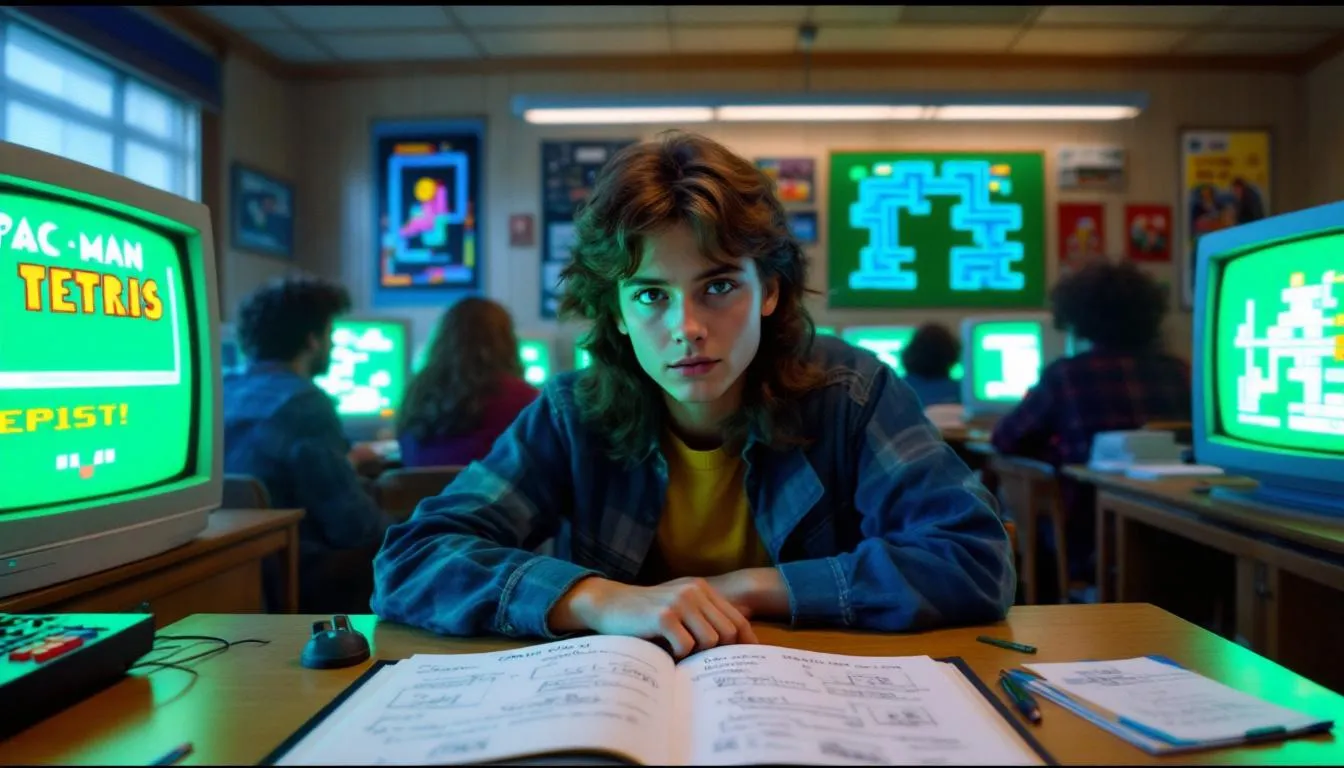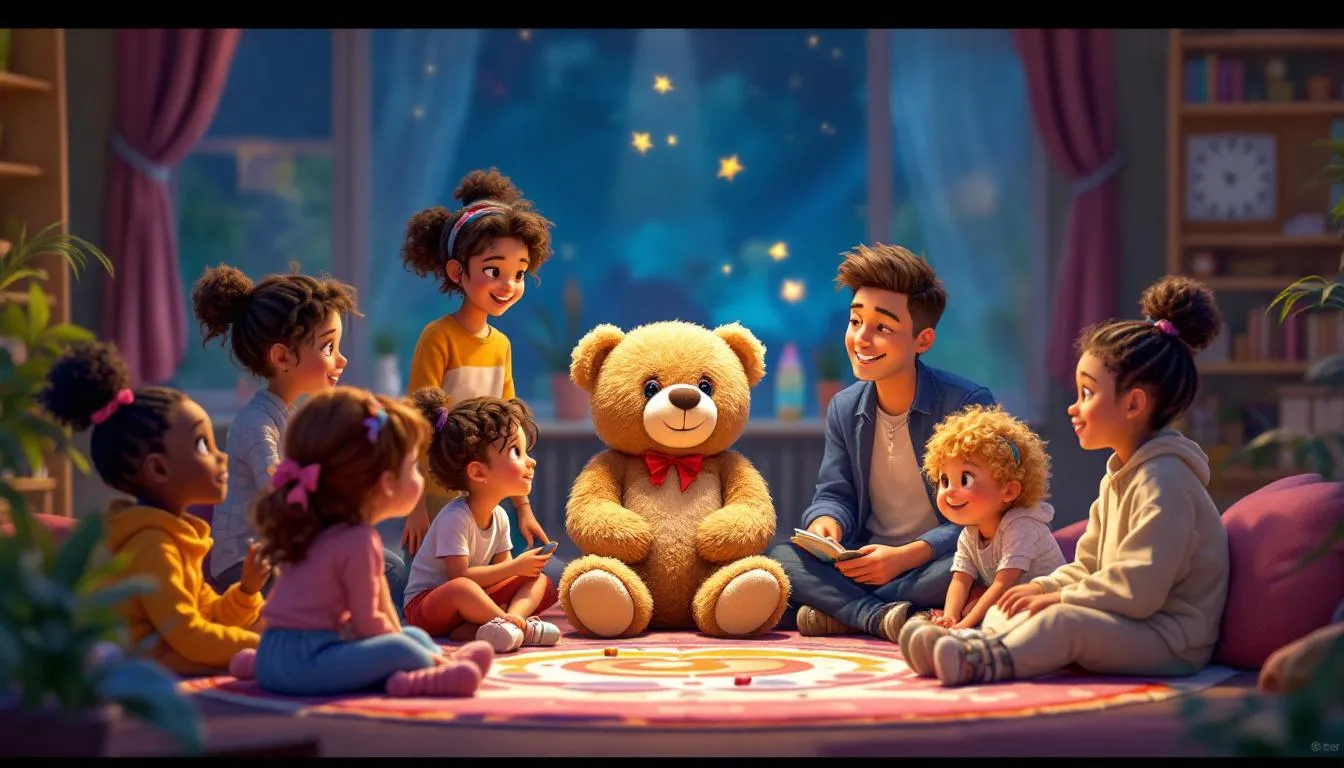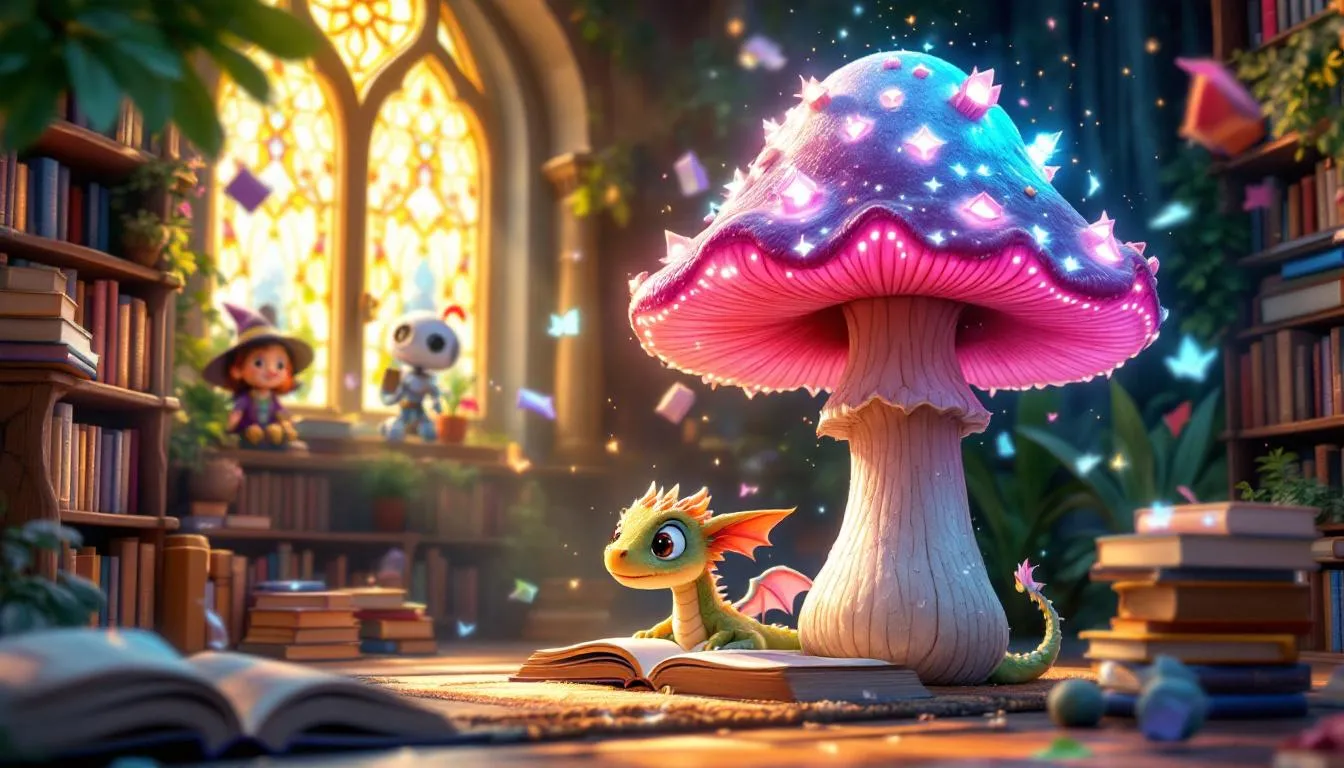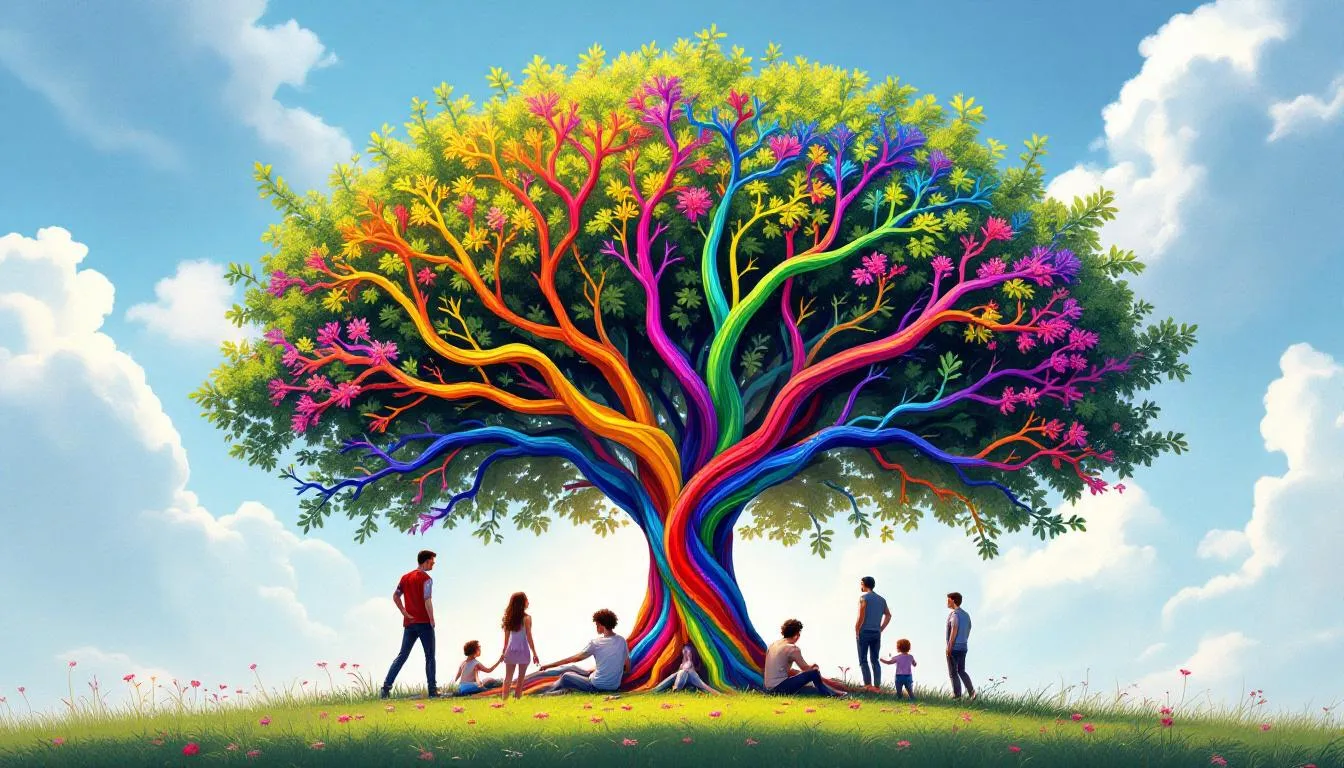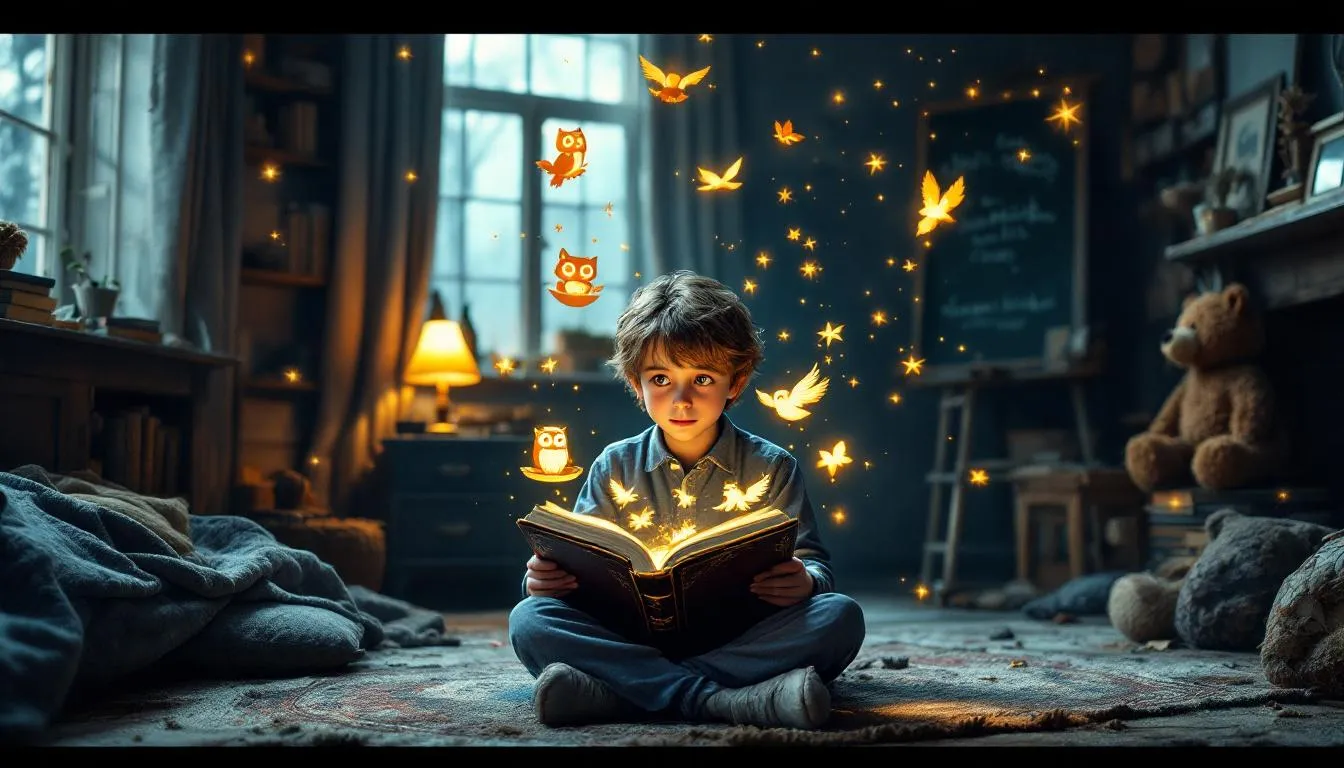Table of Contents
Introduction
Growing up, I was often labeled a ‘nerd,’ a term whose meaning evolved over the years. Initially, it suggested someone buried in books, awkwardly sidestepping social interactions. But as I matured, I recognized this label encompasses much more. A ‘nerd’ can be an academic whiz, a tech guru, or even a comic book artist. Understanding these archetypes is crucial to appreciating the rich tapestry of skills and passions they embody. By redefining what it means to be a ‘nerd,’ we can celebrate individuality beyond outdated stereotypes, paving the way for a more inclusive narrative.
Traditional vs. Modern ‘Nerd’ Stereotypes
In the era of Revenge of the Nerds and other ’80s classics, the ‘nerd’ stereotype represented the quintessential awkward genius with oversized glasses, braces, and a penchant for pocket protectors. This image, though amplified by Hollywood, was rooted in reality. Being a ‘nerd’ often meant being a social outcast, excelling academically but struggling socially. Passion for non-mainstream interests like computers or chess could set you apart. I vividly remember my own experience, carrying around science fiction novels and feeling like a club of one.
Fast forward a few decades, and the media landscape has dramatically evolved. Shows like The Big Bang Theory and movies like Spider-Man have reshaped the ‘nerd’ image, showing that geeky interests can be both cool and endearing. Now, it’s common to see the protagonist of a blockbuster or bestselling novel being the ‘nerd.’ These characters are celebrated for their intelligence and quirkiness, highlighting a newfound charm and prestige.
This shift reflects broader societal changes, where being different is celebrated rather than ridiculed. Behind every stereotype lies a diversity of individuals whose skills and passions defy simple labels. It’s these unique aspects we’ll explore next, examining how academic prowess is just one facet of a ‘nerd’s’ identity.
The Academic ‘Nerd’
From my school days, I’ve learned that academic ‘nerds’ are more than equations and periodic tables. These individuals, often stereotyped as science and math enthusiasts, are the ones who light up at solving complex problems or unveiling the universe’s mysteries. Let’s delve deeper into this stereotype.
Growing up, I was fascinated by science fairs. My friend Jake was the quintessential science ‘nerd’—he could recite the periodic table in his sleep and loved tinkering with electronics. He was the kid whose homemade volcano actually worked. But Jake was more than a science enthusiast; he was an explorer at heart, curious about how things worked, which led him to a career in engineering. He shattered the stereotype, showing that being an academic ‘nerd’ is about a passion for discovery, not just laboratories and textbooks.
Then there’s the bookworm, a role I know well. As a kid, I spent hours in the library, devouring every book I could find. I wasn’t alone in this quiet rebellion against boredom. The rise of online communities for book lovers has shown that bookworms thrive in the digital age. Platforms like Goodreads and Bookstagram have transformed solitary reading into a communal experience, where discussions bring stories to life and connect readers globally. These platforms celebrate not just the love of reading but also the depth of thought that accompanies it.
Examining the variety of ‘nerd’ identities reveals that academic prowess is just one piece of the puzzle. There’s a spectrum of creativity and innovation these individuals bring, and it’s time to highlight those who express their ‘nerdiness’ through art, imagination, and more.
The Creative ‘Nerd’
I’ve always been in awe of those who express their ‘nerdiness’ through art and design. These creative ‘nerds’ are dreamers, seeing the world as it could be. I recall my friend Sarah from high school, who could transform a blank canvas into a vivid landscape with just a few brushstrokes. She was the quintessential art aficionado, lost in her sketchbook for hours. It wasn’t just about the finished piece; it was about the joy of bringing imagination to life. Sarah became a graphic designer, proving that creativity is a powerful force in ‘nerddom.’ These individuals remind us that being a ‘nerd’ isn’t solely about academic achievements; it’s about envisioning and creating.
Then there are the music and theater geeks—performers whose passion is contagious. In college, I knew Tom, a music ‘nerd’ who could play almost any instrument. Watching him on stage was like witnessing magic. Whether in a café or a grand theater, his love for music was palpable. Theater geeks share this energy. They live for the applause, the thrill of characters, and storytelling that resonates. Their craft highlights the diversity and dynamism of the ‘nerd’ world.
As we explore ‘nerd’ identities, let’s not forget the tech-savvy and gaming enthusiasts redefining ‘nerd’ in the digital age.
The Tech and Gaming ‘Nerd’
Thinking about tech and gaming ‘nerds’ brings a smile, recalling countless hours with friends, controllers in hand, battling in virtual worlds. Video game enthusiasts aren’t just gamers; they’re strategists, storytellers, and community builders. My friend Alex comes to mind, diving into games and emerging with tales of epic quests and camaraderie. Alex wasn’t just playing; he was experiencing a narrative, often discussing game lore with the passion of a literature class. This love morphed into designing game levels, a skill leading to a career in game development. It reminds us that gaming is a vibrant space where creativity and technology blend, offering a playground for innovation and storytelling.
Speaking of innovation, tech ‘nerds’ are architects of our digital future. I remember the excitement when the first coding club started at my school. Suddenly, lines of code weren’t a jumble; they were building blocks of websites, apps, and robots. Students who felt out of place in traditional classrooms found their niche, unlocking potential. I recall a group project building a simple robot for competition. The thrill of watching it move was unparalleled, a testament to teamwork and creativity. Coding and robotics are integral to education, teaching problem-solving and critical thinking crucial in today’s tech-driven world.
As we consider ‘nerd’ identities, it’s fascinating to see how passions manifest across cultures and regions, each adding unique flavor.
Cultural and Geographical Variations
The concept of a ‘nerd’ varies dramatically across cultures. Growing up, I had a pen pal in Japan, and our conversations often highlighted these differences. In Japan, “otaku” can refer to someone deeply passionate about a subject, be it anime, manga, or technology. Unlike the historically negative ‘nerd’ connotation in the West, ‘otaku’ often celebrates dedication and expertise. My friend was a self-proclaimed ‘otaku,’ his knowledge of robotics impressive. He once sent me a video of a robot he built that could draw—amazing!
Geography also shapes ‘nerd’ identities. In tech hubs like Silicon Valley, being a ‘tech nerd’ is practically a success prerequisite. The same enthusiasm for innovation might be perceived differently in rural areas, where hands-on skills are more valued. I remember visiting a small town and meeting a young inventor who, without formal training, designed a water purification system for his community. He was a ‘nerd’ in his way, using his environment to fuel ingenuity.
These cultural and geographical nuances highlight the beauty of the ‘nerd’ identity—diverse and multifaceted as the people who embrace it. This variation enriches our understanding of being a ‘nerd’ and paves the way for broader acceptance and celebration of diverse passions and talents.
The Positive Impact of Embracing ‘Nerd’ Identities
Embracing ‘nerd’ identities in schools can be transformative for inclusivity and acceptance. I remember when my daughter’s school introduced a ‘Nerd Day’ during Spirit Week. Initially, I was apprehensive, worried it would reinforce stereotypes. But it was a day of celebration. Students proudly wore T-shirts with favorite math equations, comics, and gaming icons. It was wonderful to see kids from different cliques coming together, sharing passions without fear of judgment. This event showed how embracing ‘nerd’ identities can create an environment where students feel valued for their unique interests, encouraging them to express themselves freely.
Beyond social acceptance, recognizing ‘nerd’ identities encourages diverse interests and skill development. In my son’s school, they introduced a ‘Passion Project’ program, allowing students to explore topics of curiosity. One shy student built a model solar system. His presentation captivated peers and teachers, revealing knowledge and enthusiasm. This initiative allowed him to shine in ways traditional academics hadn’t. It was a powerful reminder that supporting diverse interests unlocks potential and inspires innovation.
As we look to the future, celebrating ‘nerd’ identities can profoundly impact schools and society. It’s about creating spaces where everyone, regardless of interests, feels seen and appreciated.
Conclusion
Reflecting on my journey and the evolving ‘nerd’ archetypes, it’s remarkable how we’ve redefined what it means to be a ‘nerd.’ From standing out with oversized glasses to becoming celebrated tech wizards, artists, and innovators, ‘nerd’ culture symbolizes passion and expertise. I often think back to school reunions with old friends who, once considered ‘nerds,’ now thrive in various fields—academia, tech, or arts. Their success stories show how embracing unique passions leads to fulfilling careers and lives.
In education, integrating ‘nerd’ culture can transform learning environments. Schools increasingly recognize diverse interests, leading to more inclusive curricula accommodating varied learning styles. My children attend a school offering electives in coding, theater, and graphic design, enriching their academic experience and helping them discover new passions. It’s a promising direction encouraging students to be unapologetically themselves.
Looking ahead, the challenge and opportunity lie in building environments—educational and societal—where everyone feels empowered to pursue what they love without fear of judgment. This means fostering not just acceptance, but genuine celebration of all things nerdy. With this mindset, we can inspire future generations to embrace their quirks and passions.
Call to Action
Now, it’s your turn to shine! Share your own ‘nerd’ stories or those of your children. Whether it’s a love for quantum physics, painting, or video games, every passion has a place in our ever-expanding definition of ‘nerdiness.’ Together, let’s spark inclusive discussions about school diversity, celebrating the unique talents that make each student special. By sharing and listening, we can build a community where every ‘nerd’ feels at home, inspiring the next generation to embrace their individuality with pride. Reach out, connect, and let’s continue this exciting journey of celebrating all things wonderfully nerdy!



